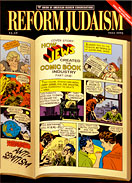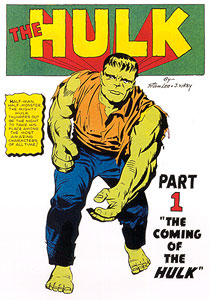How the Jews Created the Comic Book Industry Part I: The Golden Age (1933-1955)
1933. FDR was inaugurated, Hitler became chancellor of Germany, television was patented, and an unemployed Jewish novelty salesman named Max Gaines (née Max Ginzberg) was pondering how on earth he would be able to feed his wife Jessie and their two young children, who were living with him at his mother's house in the Bronx. To lift his spirits, he began reading some Sunday funnies stored in his mother's attic. Suddenly the idea hit him: if he enjoyed reading old comic strips like "Joe Palooka," "Mutt and Jeff," and "Hairbreadth Harry," maybe the rest of America would, too!



